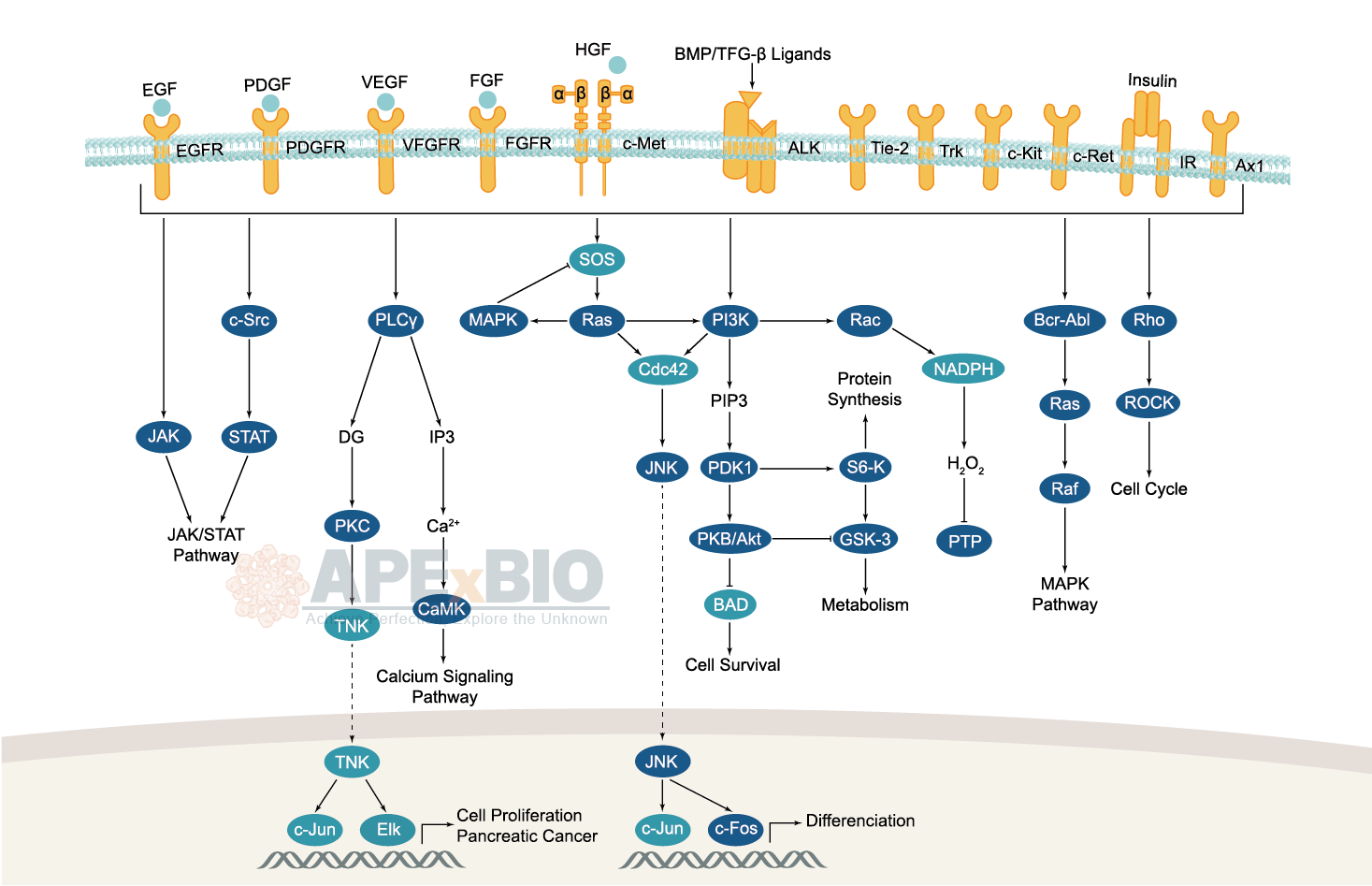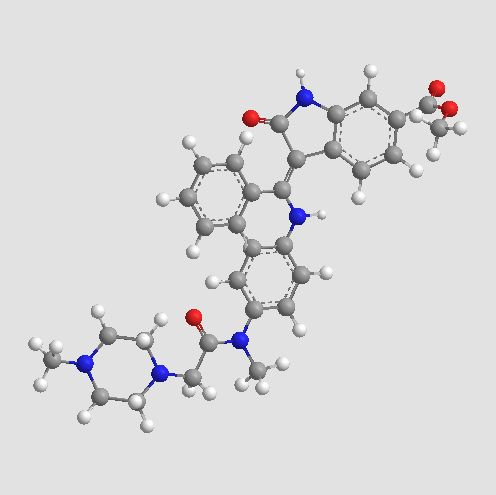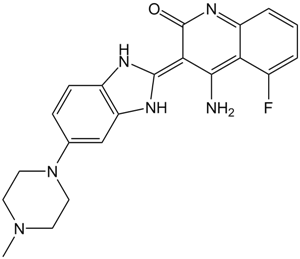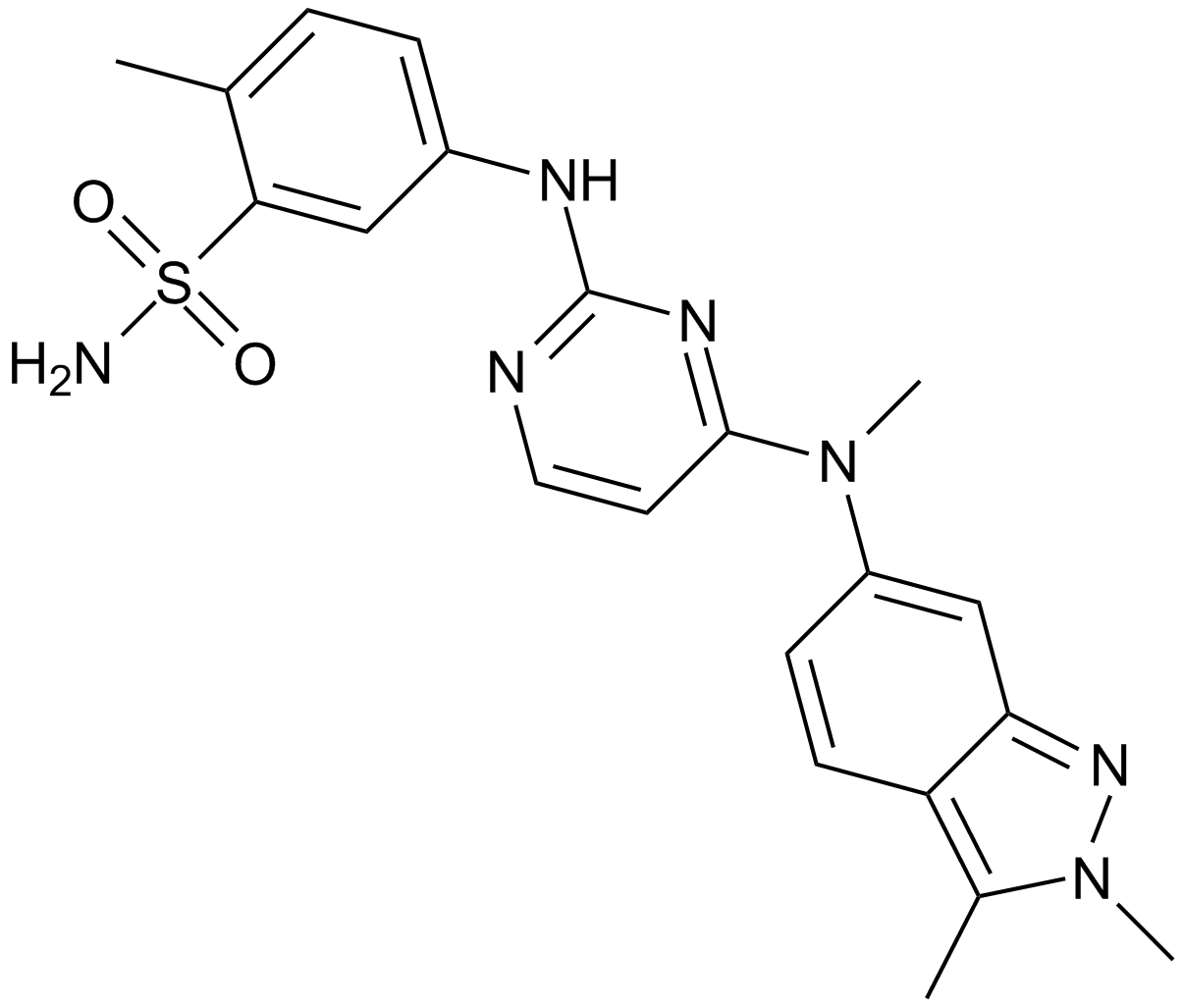Tyrosine Kinase

Receptor tyrosine kinases bind to extracellular ligands/growth factors, which promotes receptor dimerization and autophosphorylation of receptor tyrosine residues. This triggers a cascade of downstream events through phosphorylation of intracellular proteins that ultimately transduce the extracellular signal to the nucleus, causing changes in gene expression. Receptor tyrosine kinases include EGFR/ErbB, PDGFR, VEGFR, FGFR and MET subfamilies etc. Dysfunctions in tyrosine phosphorylation are linked to oncogenic transformation. In additions, various adaptor and effector proteins couple to carboxy-terminal of an active kinase. For instance, binding of the GRB2 adaptor protein activates EGFR and MAPK/ERK signaling.
Non-receptor tyrosine kinases involve many well-defined proteins (e.g. the Src family kinases, c-Abl, and Jak kinases) and other kinases which regulates cell growth and differentiation. For example, Src family kinases are curial for activating and inhibitory pathways in the innate immune response.
-
 A8252 Nintedanib (BIBF 1120)3 CitationTarget: VEGFR|PDGFR|FGFRSummary: VEGFR/PDGFR/FGFR inhibitor
A8252 Nintedanib (BIBF 1120)3 CitationTarget: VEGFR|PDGFR|FGFRSummary: VEGFR/PDGFR/FGFR inhibitor -
 A2168 Dovitinib (TKI-258, CHIR-258)2 CitationTarget: FLT3|VEGFR|PDGFR|c-Kit|FGFRSummary: Multitargeted RTK inhibitor
A2168 Dovitinib (TKI-258, CHIR-258)2 CitationTarget: FLT3|VEGFR|PDGFR|c-Kit|FGFRSummary: Multitargeted RTK inhibitor -
 A3022 Pazopanib (GW-786034)Target: CSF-1R|VEGFR|PDGFR|c-Kit|FGFRSummary: VEGFR/PDGFR/FGFR inhibitor
A3022 Pazopanib (GW-786034)Target: CSF-1R|VEGFR|PDGFR|c-Kit|FGFRSummary: VEGFR/PDGFR/FGFR inhibitor -
 A4116 Danusertib (PHA-739358)2 CitationTarget: Aurora KinasesSummary: Pan-aurora kinase inhibitor
A4116 Danusertib (PHA-739358)2 CitationTarget: Aurora KinasesSummary: Pan-aurora kinase inhibitor

